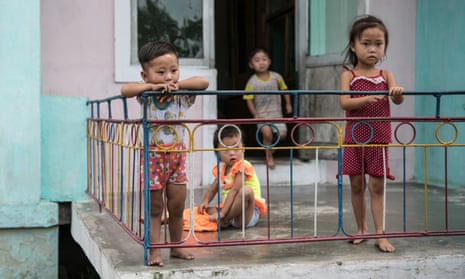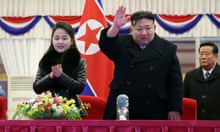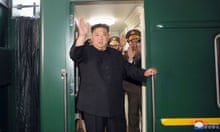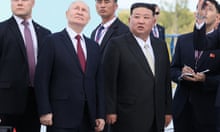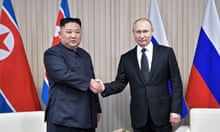The head of the UN World Food Programme has called for the White House and other western donors to put children’s lives before politics and fund a major injection of aid to North Korea despite the failure of Donald Trump’s summit with Kim Jong-un.
David Beasley, a former Republican governor of South Carolina who backed Trump’s campaign for the US presidency, said he had heard concerns that responding to an appeal from Pyongyang would prop up the Kim regime.
But in an interview with the Guardian, the World Food Programme’s executive director said, “as we speak”, teams of experts were canvassing the North Korean countryside to provide the donors with evidence of the scale of the crisis.
Due to flooding and a heatwave last year, North Korea is facing a shortfall of 1.4m tonnes in food production this year, including wheat, rice, potatoes and soybean.
An estimated 11 million people – 40% of the population – are already undernourished, with one in five children stunted due to chronic malnutrition.
“This is a serious issue and children are going to be severely impacted if we do not do something by the time the lean season truly kicks in by June,” Beasley said. “Russia has responded and is sending in 50,000 metric tonnes [of wheat], China is doing something too. Western donors are still hoping that the [breaking] of the impasse will take place so that everyone can come in together.”
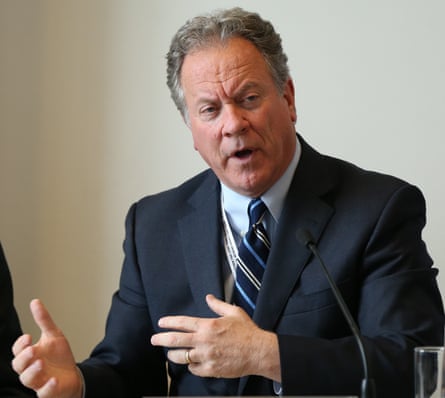
Beasley added: “The concerns have been about not helping the regime. We make the case: don’t let innocent children suffer because of politics.”
The second Trump-Kim summit in Hanoi in February ended in embarrassing failure for the White House after the US refused North Korean demands for sanctions relief in return for limited denuclearisation.
On Monday, the US secretary of state, Mike Pompeo, said he hoped the two men would meet again in the “coming months” but Trump had admitted at the time of the second summit that was no guarantee.
Beasley said of the summit there was “no doubt that North Korea was hoping that sanctions would be, if not lifted, mediated or moderated for example in the border industrial zone”, and that the outcome was “disappointing for a lot of people”.
“I think had there been a breakthrough you would have seen western donors, the traditional WFP donors, giving greater attention to how we can address some of the humanitarian concerns inside DPKR,” he said. “We will make the case that the drought impacted this nation severely, if the numbers show what we think they will, and let’s help the innocent children and families get through this difficult time period in hope there will be a political solution soon.”
Beasley said the regime had responded to the WFP’s requests for access to the country to prove to donors that the aid being requested was necessary to save lives.
“I have had very frank conversations with the North Korea leadership,” Beasley said. “I told them that we must have completely independent assessment to determine what the reality is so that we can make the case to the donors. And quite frankly they have given everything we asked for … They are in dire straits. They have appealed to us. They have come to [the WFP’s headquarters in] Rome. That is why we are on the ground now.”
Asked whether Trump was engaged on the issue, Beasley responded: “We are making donors aware of the situation. And I have let our donors know where we are in the process of assessments.”
North Korea has struggled to feed its people for more than two decades and a famine in the 1990s left as many as one million dead – about 5% of the population at the time.
A report out this week from the WFP found that more than 100 million people are starving globally, up from 80 million three years ago. Those numbers did not include those in North Korea, Venezuela or Mozambique, where Cyclone Idai caused havoc on 14 March.
Beasley said he was short of funds given the scale of the hunger around the world, despite the WFP earning $5m more a day than when he started two years ago.
Additional reporting by Emma Graham-Harrison
